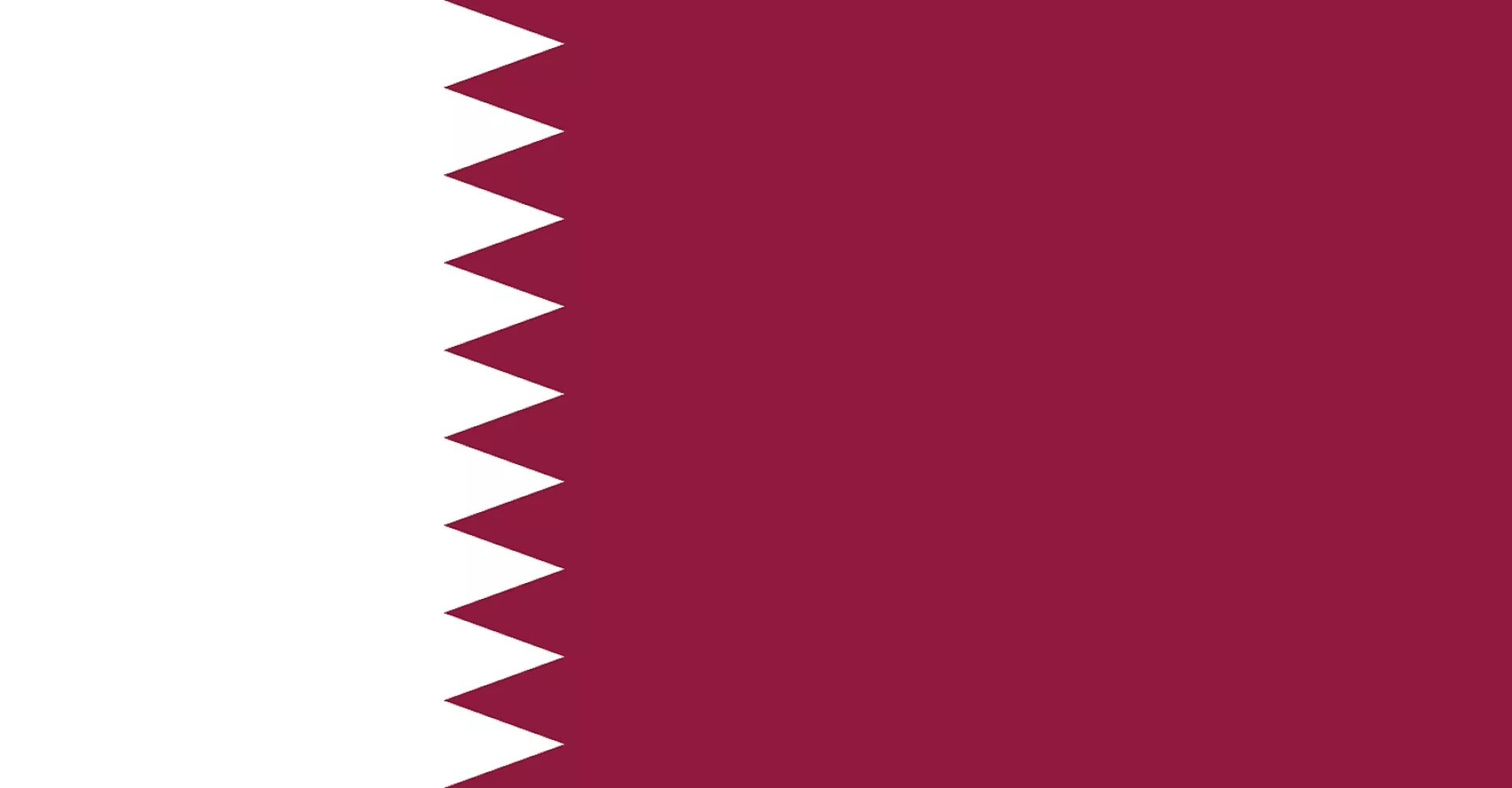

Qatar
Qatar is located in the middle of the west coast of the Arabian Gulf, with a stable political situation and good social security. The population is 2.94 million, of which Qatari citizens account for about 15%. Foreigners mainly come from India, Pakistan and Southeast Asian countries. Arabic is the official language and English is widely spoken. Qatar is rich in oil and gas resources, with proven oil reserves of 26.2 billion barrels, ranking 13th in the world; natural gas reserves of 25.8 trillion cubic meters, ranking third in the world, and liquefied natural gas exports have ranked first in the world in recent years and are planned to increase to 126 million tons/year in five years. Thanks to the gradual reconciliation of the Gulf diplomatic severance incident and the rapid rise in international oil and gas prices, Qatar's economy will resume growth in 2022, and its development prospects will stabilize and improve. In 2022, Qatar's actual GDP growth rate will be 3.2%, and its per capita GDP will be close to US$82,000. According to the World Bank's forecast, Qatar is expected to achieve an economic growth of 3.3% in 2023, ranking first among the six GCC countries. As of September 2023, the three major international rating agencies have given Qatar a high sovereign credit rating. S&P and Moody's adjusted their outlook from "stable" to "positive", and Fitch continued to maintain a "stable" outlook. Qatar's rich oil and gas export revenue, stable economic growth prospects, increasingly improved infrastructure and continuously improving business environment provide a good development space for foreign corporate investment. Qatar has modern infrastructure such as roads, subways, airports, ports and communications. At present, facilities such as Hamad International Airport and Hamad Port have been put into use. Qatar Airways has opened more than 170 international routes connecting all parts of the world. In recent years, the Qatari government has vigorously promoted economic opening up, actively encouraged foreign investment in non-oil and gas industries, and vigorously supported the development of financial services, construction engineering, processing and manufacturing, aviation and shipping, modern logistics, tourism and trade services in order to achieve economic diversification and promote national sustainable development. At present, Qatar has relaxed restrictions on foreign investment in setting up wholly-owned enterprises and investing in real estate in multiple industries, promulgated the Government and Social Capital Cooperation Law, and supported foreign investment in cooperation projects in the fields of food safety, infrastructure, industrial manufacturing, digital economy, education and medical care.
【Customs and Taboos】Qatar’s state religion is Islam, which prohibits alcohol and pork, and it is taboo to talk about pigs. The religious atmosphere is strong. Women should avoid wearing too revealing clothes in public, and men should avoid wearing sleeveless vests and shorts. It is not appropriate to be overly intimate in public. Physical contact should be avoided between strangers. You are not allowed to visit the mosque without permission, and you are not allowed to take pictures inside the mosque. You must be solemn when taking pictures outside the mosque.
Please do not take pictures of local leaders, government departments, military and police personnel, or record videos with them as the background. Be cautious when taking pictures of local people, especially women and children, and you must obtain their consent in advance.
(1) Trade management regulations: According to the Qatar Customs Law, individuals who import goods for sale in Qatar must register at the Importer Registration Office and obtain approval from the Qatar Chamber of Commerce and Industry. Qatar does not impose customs duties on exports. Exports to Israel are prohibited; certain subsidized foods and antiques are prohibited from export.
(2) Customs management regulations: Qatar prohibits the import of alcohol and pork products. Meat and meat products exported from China to Qatar must provide halal food certification, origin certificate and food hygiene certificate. Halal food certification is certified by the China Council for the Promotion of International Trade and then certified at the Qatar Embassy in China. Halal food must comply with Chinese food hygiene standards and provide origin certificate and food hygiene certificate. There are no other special requirements. After the products arrive in Qatar, the customs will conduct routine sampling inspections. The outer packaging of food should be translated into Arabic and indicate the product name, ingredients (by percentage), net weight, production date, shelf life (the expiration date must be indicated, otherwise it will not be allowed to be imported), storage method and trademark origin. [Other goods] Only the certificate of origin, product certificate and packing list are required for approval. However, toys must provide a commercial inspection certificate; if not, samples must be sent to the Qatar Standards Bureau for inspection, and they can be released only after they pass the inspection.
(3) Investment preferential policies:
[Tax preferential policies] Corporate income tax reduction and exemption. Qatar grants tax exemptions of up to 5 years for taxable items that meet the standards, and taxpayers can apply to the Qatar Ministry of Commerce and Industry. Within the scope of the Investment Law, foreign investment capital is exempted from income tax, and the tax exemption period shall not exceed 10 years from the date of commissioning of the investment project. Tariff exemption. For foreign investors, imports of machinery and equipment for engineering construction and imports of raw materials and semi-finished products that cannot be purchased in Qatar are exempt from tariffs.
[Regional preferential policies] Qatar Financial Center preferential policies. Foreign companies are allowed to operate 100% wholly-owned and transfer 100% of their profits abroad. Qatar Free Zone preferential policies. For foreign companies operating in the free zone, the Qatari government offers preferential policies including: foreign investors can hold up to 100% of the shares and are exempt from corporate income tax for up to 20 years. Preferential policies of Qatar Science Park. Enterprises in the science park are exempt from corporate income tax and tariffs; foreign companies registered in the park can hold 100% of the shares, with no restrictions on capital and profit repatriation; discounts for renting land or office space in the park; companies in the park are allowed to engage in direct trade in Qatar without the need for local intermediaries; and financial subsidies are provided to small and medium-sized enterprises and start-ups in the energy, environment, healthcare and information technology industries.
(4) Regulations on investment industries:
[Equity restrictions] In recent years, Qatar has increased its efforts to attract foreign investment and encouraged foreign investors to invest in agriculture, industry, health, education, tourism, natural resources, energy, business consulting, information technology, culture, sports and other fields. Foreign investors are allowed to hold shares exceeding 49% of the project capital, up to 100%, but this must comply with the country's development plan and be approved by the government authorities. Focus on supporting projects and export industries that can make the most effective use of existing domestic raw materials, projects that can provide new products and use new technologies, projects that are committed to localizing industries with international reputations, and projects that value localization of talents and use domestic talents.
[Prohibited industries] Foreign investors are prohibited from investing in Qatar's banking, insurance, commercial agency and real estate industries unless they obtain special permission from the cabinet.

Customized overseas services for Chinese enterprises
Helping Chinese companies to expand overseas with less worries
